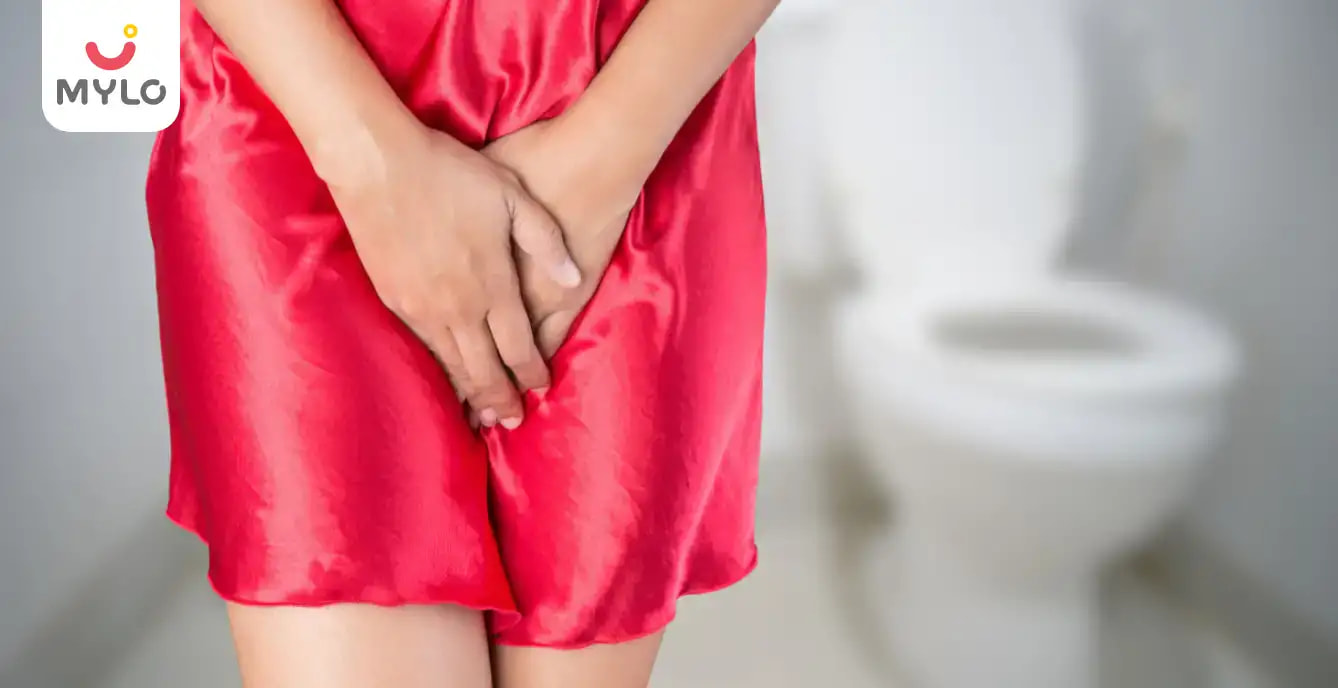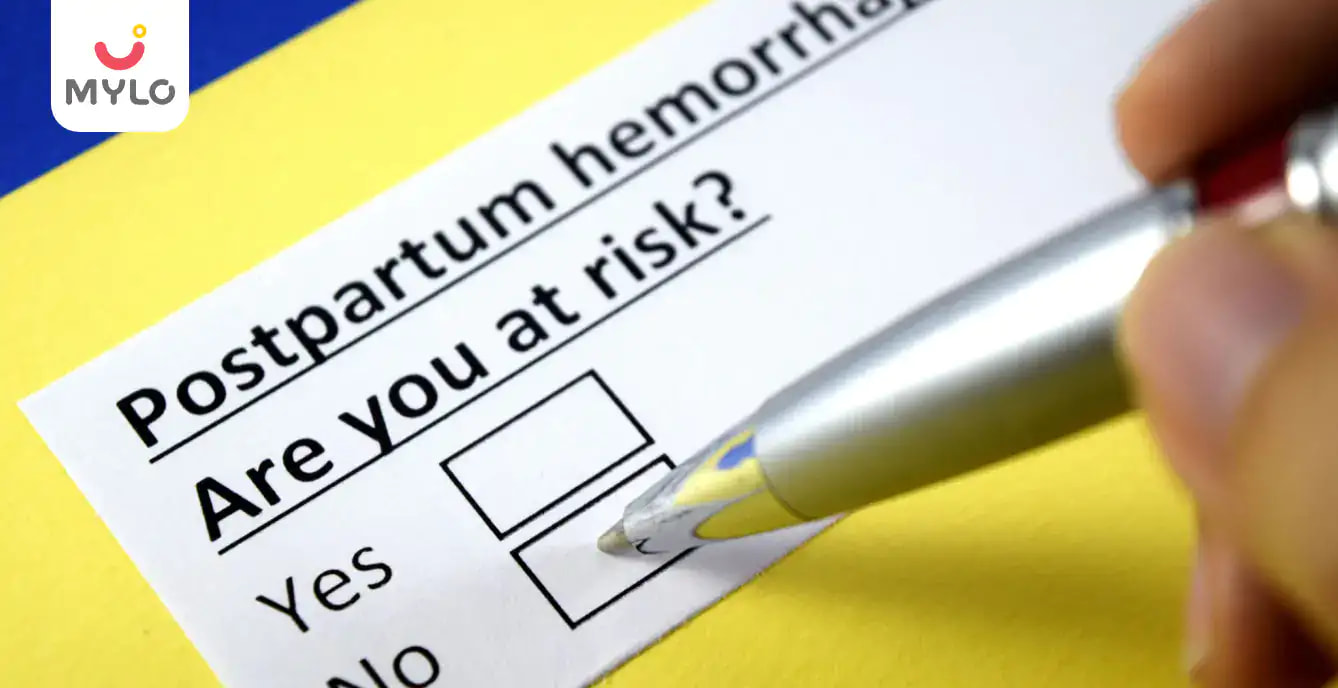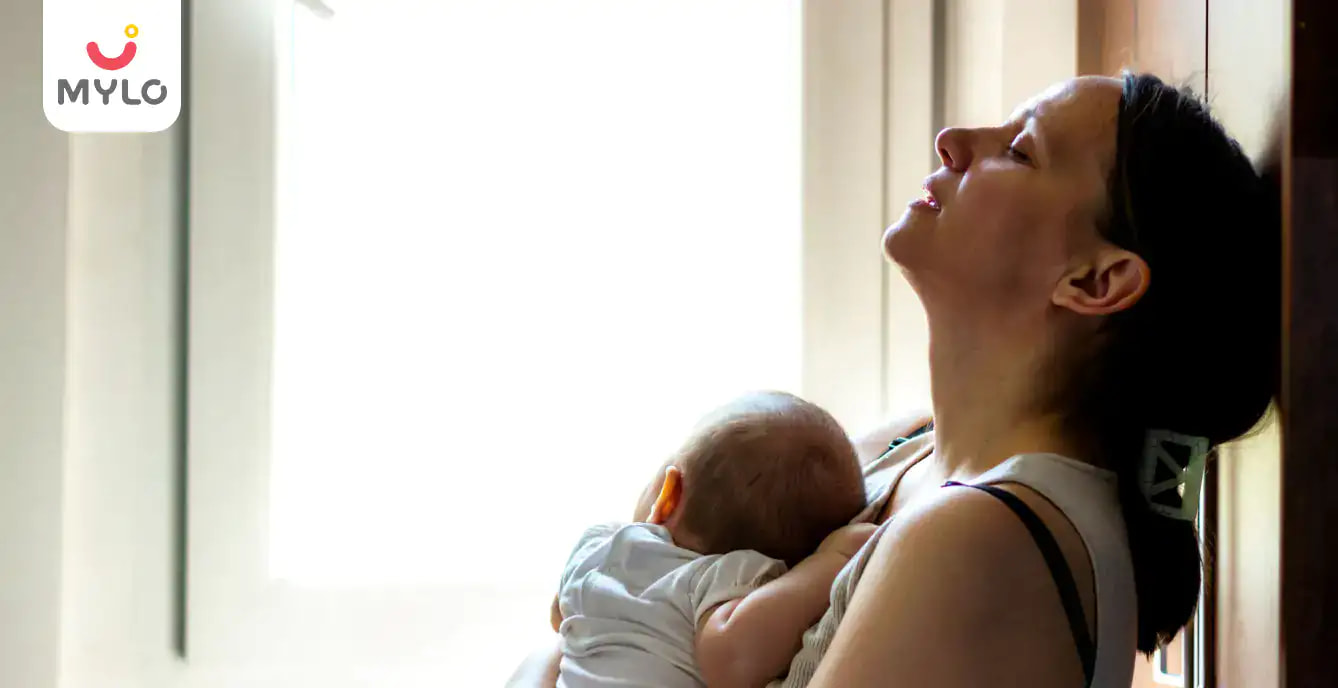Home

Postnatal Care

What Are The Causes And Types of Postpartum Hemorrhage?
In this Article

Postnatal Care
What Are The Causes And Types of Postpartum Hemorrhage?
Updated on 3 November 2023
Postpartum hemorrhage is one of the leading causes of maternal mortality. According to studies, postpartum bleeding alone causes more than 25% of maternal deaths caused during or after birth. There are different types of postpartum hemorrhage and it is necessary to know about them to be aware of the risks and signs of postpartum bleeding. This blog features the various types of postpartum hemorrhage and the four most common causes of postpartum bleeding.
What Is Postpartum Hemorrhage?
Postpartum hemorrhage is a serious complication of childbirth that results in the loss of a large amount of blood. It is a leading cause of maternal mortality. The amount of blood loss and the severity of postpartum hemorrhage depends on the stage of labour and delivery.
The different types of postpartum hemorrhage can be classified into mild, moderate, or severe, based on the amount of blood that is lost. The causes of postpartum hemorrhage vary. Women with a history of postpartum hemorrhage are at increased risk of postpartum hemorrhage in a subsequent delivery.
What Are The Types Of Postpartum Hemorrhage?
There are two types of postpartum hemorrhage: Primary postpartum haemorrhage and secondary postpartum haemorrhage.
Primary Postpartum Hemorrhage (PPH)
Postpartum hemorrhage is heavy bleeding that occurs after childbirth. Primary postpartum hemorrhage is excessive bleeding after the placenta separates from the uterine wall. All women experience uterine contraction after the delivery of the baby. However, with primary postpartum hemorrhage, the bleeding is excessive and occurs between the time of delivery and 24 hours after delivery. According to studies, primary postpartum hemorrhage occurs in around 1%-6% of all deliveries.
Secondary Postpartum Hemorrhage (SPH)
Secondary postpartum hemorrhage is bleeding that occurs from 24 hours to 6 weeks into the postpartum period. The occurrence of secondary postpartum hemorrhage is way less than primary postpartum hemorrhage. However, it still affects 0.2%-0.8% of all the deliveries. It is one of the most common causes of hospital readmission after delivery. Secondary postpartum hemorrhage can affect women who have had a previous low transverse uterine incision due to uterine atony, active vaginal bleeding, retained placental fragments, and lacerations of the cervix.
What Are The 4 Most Common Causes Of Postpartum Hemorrhage?
Four Ts can be used to identify the cause of postpartum hemorrhage: tone, trauma, tissue, and thrombin. Each of these has its own set of signs and symptoms that can help to pinpoint the underlying cause.
1. Uterine Atony (Tone)
Uterine atony is the most common cause of postpartum haemorrhage. The tone here refers to the tone of the uterine muscles. Uterine atony occurs when the muscles of the uterus fail to contract properly after childbirth. This can cause the blood vessels in the uterus to leak, resulting in heavy bleeding. If the cause is tone, the uterus may need to be stimulated with medication or a shot of Pitocin.
2. Laceration, Hematoma, Inversion, Rupture (Trauma)
This can occur during childbirth if the baby is large or the birth is particularly difficult. It can also happen if the placenta is not delivered properly. In rare cases, it can also be caused by medical interventions such as C-sections. Trauma to the uterine walls or cervix can also cause heavy bleeding. In case the cause of postpartum bleeding is trauma, the wounds may need to be repaired surgically.
3. Retained Tissue Or Invasive Placenta (Tissue)
If the placenta is not correctly detached from the uterine wall, it can lead to postpartum haemorrhage. This is because the blood vessels in the placenta are still open and bleeding. If the cause of postpartum bleeding is tissue, the placenta may need to be removed manually.
4. Coagulopathy (Thrombin)
Coagulopathy is the abnormality during blood clotting which can be caused by several factors including both hereditary and acquired factors. Thrombin is a clotting factor that is essential for proper blood clotting. If there is a deficiency of thrombin, it can lead to heavy bleeding. If the cause of haemorrhage is thrombin, blood transfusions or medication may be necessary.
To sum up, different types of postpartum hemorrhage require different kinds of treatments. Thus, identifying the cause of postpartum hemorrhage is essential to provide the appropriate treatment. New mothers must also focus on their postpartum care to ensure their health and safety.



Written by
Parul Sachdeva
A globetrotter and a blogger by passion, Parul loves writing content. She has done M.Phil. in Journalism and Mass Communication and worked for more than 25 clients across Globe with a 100% job success rate. She has been associated with websites pertaining to parenting, travel, food, health & fitness and has also created SEO rich content for a variety of topics.
Read MoreGet baby's diet chart, and growth tips

Related Articles
Related Questions
Influenza and boostrix injection kisiko laga hai kya 8 month pregnancy me and q lagta hai ye plz reply me

Hai.... My last period was in feb 24. I tested in 40 th day morning 3:30 .. That is faint line .. I conculed mylo thz app also.... And I asked tha dr wait for 3 to 5 days ... Im also waiting ... Then I test today 4:15 test is sooooo faint ... And I feel in ma body no pregnancy symptoms. What can I do .

Baby kicks KB Marta hai Plz tell mi

PCOD kya hota hai

How to detect pcos

Related Topics
RECENTLY PUBLISHED ARTICLES
our most recent articles

Diet & Nutrition
গর্ভাবস্থায় আলুবোখরা: উপকারিতা ও ঝুঁকি | Prunes During Pregnancy: Benefits & Risks in Bengali

Diet & Nutrition
গর্ভাবস্থায় হিং | ঝুঁকি, সুবিধা এবং অন্যান্য চিকিৎসা | Hing During Pregnancy | Risks, Benefits & Other Treatments in Bengali

Women Specific Issues
স্তনের উপর সাদা দাগ: লক্ষণ, কারণ এবং চিকিৎসা | White Spots on Nipple: Causes, Symptoms, and Treatments in Bengali

Diet & Nutrition
গর্ভাবস্থায় পোহা: উপকারিতা, ধরণ এবং রেসিপি | Poha During Pregnancy: Benefits, Types & Recipes in Bengali

Diet & Nutrition
গর্ভাবস্থায় মাছ: উপকারিতা এবং ঝুঁকি | Fish In Pregnancy: Benefits and Risks in Bengali

Diet & Nutrition
গর্ভাবস্থায় রেড ওয়াইন: পার্শ্ব প্রতিক্রিয়া এবং নির্দেশিকা | Red Wine During Pregnancy: Side Effects & Guidelines in Bengali
- ইনার থাই চ্যাফিং: কারণ, উপসর্গ এবং চিকিৎসা | Inner Thigh Chafing: Causes, Symptoms & Treatment in Bengali
- গর্ভাবস্থায় ব্রাউন রাইস: উপকারিতা ও সতর্কতা | Brown Rice During Pregnancy: Benefits & Precautions in Bengali
- Velamentous Cord Insertion - Precautions, Results & Safety
- Unlock the Secret to Flawless Skin: 7 Must-Have Qualities in a Face Serum
- Unlock the Secret to Radiant Skin: How Vitamin C Serum Can Transform Your Complexion
- Gender No Bar: 10 Reasons Why Everyone Needs a Body Lotion
- Unlock the Secret to Radiant Skin How to Choose the Perfect Body Lotion for Your Skin Type
- Top 10 Reasons to Apply a Body Lotion After Every Bath
- Communication in Toddlers: Milestones & Activities
- How to Improve Vocabulary for Toddlers?
- A Comprehensive Guide to Understanding Placenta Accreta
- Vulvovaginitis in Toddlers Causes, Symptoms and Treatment
- A Comprehensive Guide to Understanding Cerebral Palsy in Children
- Bitter Taste in Mouth During Pregnancy: Understanding the Causes and Remedies


AWARDS AND RECOGNITION

Mylo wins Forbes D2C Disruptor award

Mylo wins The Economic Times Promising Brands 2022
AS SEEN IN
















- Mylo Care: Effective and science-backed personal care and wellness solutions for a joyful you.
- Mylo Baby: Science-backed, gentle and effective personal care & hygiene range for your little one.
- Mylo Community: Trusted and empathetic community of 10mn+ parents and experts.
Product Categories
baby carrier | baby soap | baby wipes | stretch marks cream | baby cream | baby shampoo | baby massage oil | baby hair oil | stretch marks oil | baby body wash | baby powder | baby lotion | diaper rash cream | newborn diapers | teether | baby kajal | baby diapers | cloth diapers |








